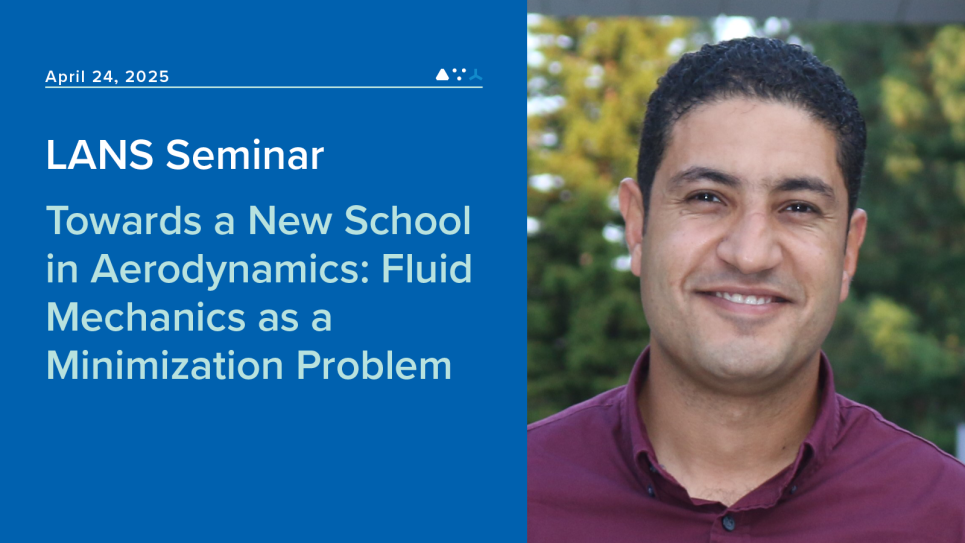
Algorithms for GNN Towards a New School in Aerodynamics: Fluid Mechanics as a Minimization Problem
Driven by an outdated problem in aerodynamics, we discovered a new principle in fluid physics. The Euler equation does not possess a unique solution for the flow over a multiply connected domain. This problem has serious repercussions in aerodynamics; it implies that the inviscid aero-hydrodynamic lift force over a two-dimensional object cannot be determined from first principles; a closure condition must be provided. The Kutta condition has been ubiquitously considered for such a closure in the literature, even in cases where it is not applicable. In this talk, I will present a special variational principle in analytical mechanics: Gauss’s principle of least constraint. We extended this principle to the continuum mechanics of incompressible flows, resulting in the Principle of Minimum Pressure Gradient (PMPG). The principle asserts that the magnitude of the pressure gradient over the field is minimum at every instant! We proved that a candidate smooth flow field is a solution of Navier-Stokes if and only if its evolution minimizes the L2 norm of the pressure gradient at every instant of time. Hence, the PMPG turns a fluid mechanics problem into a minimization one where fluid mechanicians need not to apply Navier-Stokes’ equations, but minimize the pressure gradient cost. In this talk, I will discuss this fresh view of fluid mechanics as a minimizing problem. Applying this new variational formulation to the century-old problem of the ideal flow over an airfoil, we developed a general (dynamical) closure condition that is, unlike the Kutta condition, derived from first principles. In contrast to the classical theory, the proposed variational theory is not confined to sharp edged airfoils; i.e., it allows, for the first time, theoretical computation of lift over arbitrarily smooth shapes, thereby generalizing the century-old lift theory of Kutta and Zhukovsky. The PMPG also allowed prediction of separation over a cylinder in the subcritical regime (where characteristics are independent of viscosity) solely from the outer flow without boundary layer calculation—a task that was deemed impossible. I will also discuss developing computational simulations using this variational formulation, which allows explicit projection of Navier-Stokes without the need to solve the Poisson equation in pressure at every time step, thereby avoiding the most expensive step in computational simulations.
Bio: Haithem Taha is currently a professor in the department of Mechanical and Aerospace Engineering at the University of California, Irvine. He received a PhD from Virginia Tech simultaneously with an MSc degree in Mathematics. Taha’s research interests span unsteady aerodynamics, theoretical mechanics and variational principles, and differential geometric mechanics and control with applications to unconventional flight mechanics such as bio-inspired flight. He is a Recipient of the NSF CAREER Award among several other awards. He is an AIAA Associate Fellow. Taha is particularly interested in the history and philosophy of mechanics and has several lectures on the topic.
See all upcoming talks at https://www.anl.gov/mcs/lans-seminars